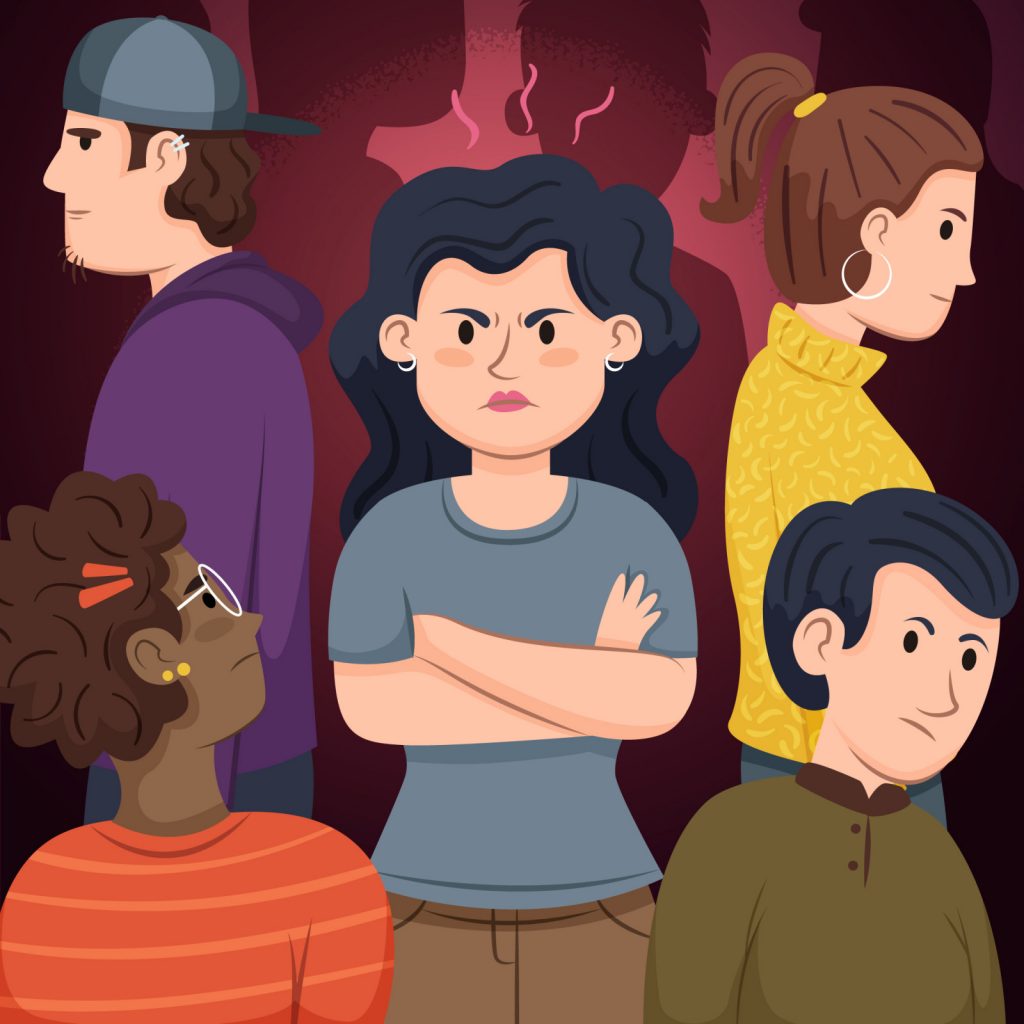In the realm of personality disorders, Narcissistic Personality Disorder (NPD) and Antisocial Personality Disorder (APD), often referred to as sociopathy, stand out as two distinctive yet overlapping conditions. These disorders present a myriad of challenges for those affected and those around them. This article seeks to delve deeper into the nuances of narcissism and sociopathy. It explores their traits, behaviors, and implications for interpersonal relationships and societal dynamics.
Narcissist vs. Sociopath
Narcissistic Personality Disorder (NPD) is characterized by a pervasive pattern of grandiosity, a constant need for admiration, and a lack of empathy for others. Individuals with NPD often exhibit fantasies of success, power, or beauty, and they require excessive admiration to maintain their fragile self-esteem. On the other hand, Antisocial Personality Disorder (APD), commonly known as sociopathy, is marked by a disregard for the rights and feelings of others, dishonesty, impulsivity, and a lack of remorse. Sociopaths may engage in manipulative behaviors and violate social norms without regard for the consequences.

Traits of Narcissists
Narcissists display a range of traits that distinguish them from sociopaths. They often have an exaggerated sense of self-importance, believing they are special and deserving of privileged treatment. Their need for constant admiration drives them to seek validation from others, and they may become envious or resentful when others receive attention instead. Despite their outward confidence, narcissists are prone to insecurity and may react aggressively or defensively when their self-image is threatened. Additionally, while they may lack genuine empathy, narcissists can sometimes exhibit empathy superficially to serve their own interests or manipulate others.
Narcissistic Traits
Grandiosity: Narcissists often have an inflated sense of self-importance and may exaggerate their achievements or talents.
Need for admiration: They crave admiration and validation from others to maintain their fragile self-esteem and may seek out attention and praise.
Sense of entitlement: Narcissists believe they are special and deserving of special treatment, often expecting others to cater to their needs and desires.
Exploitative behavior: Similar to sociopaths, narcissists may exploit others for their own gain. They use manipulation and deceit to achieve their goals.
Fragile self-esteem: Despite their outward confidence, narcissists have a fragile sense of self-esteem that can be easily wounded by criticism or rejection.
Traits of Sociopaths
Sociopaths, in contrast, show a profound disregard for societal norms and the rights of others. They may engage in dishonest behavior, manipulation, and exploitation without remorse. Unlike narcissists, who may seek admiration and validation, sociopaths are driven by personal gain and gratification. Their impulsivity and disregard for consequences can lead to reckless behavior, including criminal acts or substance abuse. Sociopaths typically lack empathy altogether and have little regard for the feelings or well-being of others. They view relationships as a means to an end rather than genuine connections. Sociopathy is estimated to affect around 1% of the population. However, due to its secretive and manipulative nature, many cases may go undiagnosed.
Sociopathic Traits
Lack of empathy: They may show a strong inability to empathize with others and show little concern for their feelings or well-being.
Manipulativeness: Sociopaths are skilled manipulators who use charm, deceit, and manipulation to exploit others for personal gain.
Impulsivity: They may engage in reckless or impulsive behavior without considering the consequences, leading to problems in various areas of their life.
Violation of social norms: Sociopaths may have a disregard for societal rules and engage in behaviors that are dishonest, criminal, or exploitative.
Lack of remorse: They typically do not feel guilt or remorse for their actions, even when they harm others.

Differences Between Narcissists and Sociopaths
Motivation and Goals
Narcissists are mainly motivated by a need for validation and admiration, seeking to maintain their inflated self-image. In contrast, sociopaths are driven by personal gain and gratification. They often exploit others for their own benefit without concern for the consequences.
Empathy and Emotional Capacity
While both narcissists and sociopaths lack genuine empathy, narcissists may still experience emotions albeit superficially. On the other hand, sociopaths show a profound inability to empathize with others.
Behavioral Patterns
Narcissists tend to focus on maintaining their self-image and seeking validation, often through manipulation and attention-seeking behaviors. Sociopaths, however, exhibit a pattern of disregard for societal norms and the rights of others. They engage in deceitful and exploitative behaviors without remorse.
Interpersonal Relationships
Narcissists may form relationships to fulfill their emotional needs and maintain their self-image. They often idealize and devalue others in the process. Sociopaths view relationships as a means to an end, manipulating and exploiting others for personal gain without genuine emotional connection.
It’s important to note that not everyone who displays traits of sociopathy or narcissism meets the criteria for a formal diagnosis of sociopathy or narcissism. However, when these traits are present to a significant degree and cause impairment in functioning or distress for the individual or those around them, professional evaluation and intervention may be warranted.

Exploring the Roots: Narcissist vs. Sociopath
While the exact causes of sociopathy and narcissism remain unclear, certain factors contribute to their development. According to Healthline, these are some of the contributing factors:
Common Risk Factors
- Childhood Experiences: Adverse experiences like abuse, neglect, or rejection during childhood can increase the likelihood of developing these disorders.
- Family Dynamics: Dysfunctional family environments where conflict and lack of support prevail may also play a role.
- Family History: Having relatives with similar disorders can heighten the risk.
Unique Risk Factors for Sociopathy (ASPD):
- Parental Substance Use: Exposure to parental substance use or smoking during pregnancy or early life may contribute.
- Community Violence and Peer Influence: Growing up in violent environments or associating with delinquent peers can increase the risk.
- Socioeconomic Status: Lower income or socioeconomic status may also be a factor.
Unique Risk Factors for Narcissism (NPD):
- Extreme Parental Admiration: Excessive praise and unrealistic expectations from parents may foster narcissistic traits.
- Brain Differences: Irregularities in brain structure and chemistry could contribute to the development of NPD.
Treatment
Treating sociopathy and narcissism can be challenging due to the inherent nature of these personality disorders. It often involves deep-seated patterns of behavior, distorted thinking, and a lack of insight into one’s own condition. However, various therapeutic approaches and strategies may help manage symptoms and improve functioning. It’s important to note that treatment for these disorders typically focuses on managing specific symptoms and behaviors rather than “curing” the disorder itself. Treatment typically involves psychotherapy aimed at addressing underlying issues, improving interpersonal skills, and promoting healthier ways of relating to others.

In summary, while narcissists and sociopaths share certain traits such as manipulation and a lack of empathy, they differ in their motivations, behaviors, and interpersonal dynamics. Recognizing these distinctions is crucial in understanding and navigating relationships with individuals who exhibit traits of these personality disorders. When dealing with a narcissist or a sociopath, establishing boundaries, seeking support, and prioritizing one’s well-being is essential in managing interactions with such individuals. Through increased awareness and understanding, we can foster healthier relationships and communities while mitigating the impact of these complex personality disorders.
Have these subjects become redundant? What do you think?
You may also like: Study Reveals Truth About ‘Opposites Attract’



